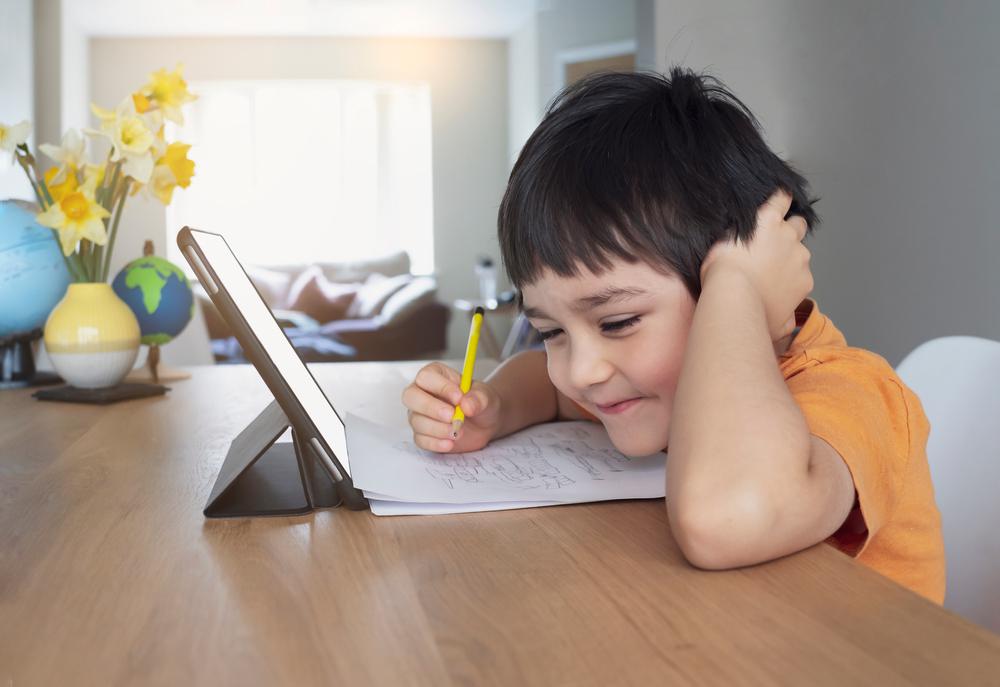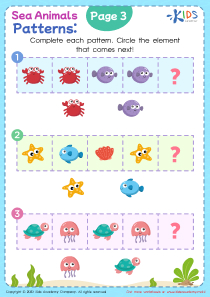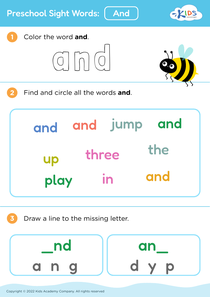Phonological awareness Preschool Worksheets
8 filtered results
-
From - To
Enhance your preschoolers' phonological awareness with our engaging worksheets! Designed to support early literacy skills, these printable resources help young learners identify sounds, rhymes, and syllables in a fun and interactive way. Our worksheets feature vibrant illustrations and engaging activities that captivate children's attention, fostering a love for learning. Perfect for teachers and parents, these materials facilitate essential skills for reading readiness. Join us in equipping your child with the foundational knowledge necessary for a successful reading journey. Explore our collection today and give your child the gift of phonological awareness through enjoyable and educational gameplay!
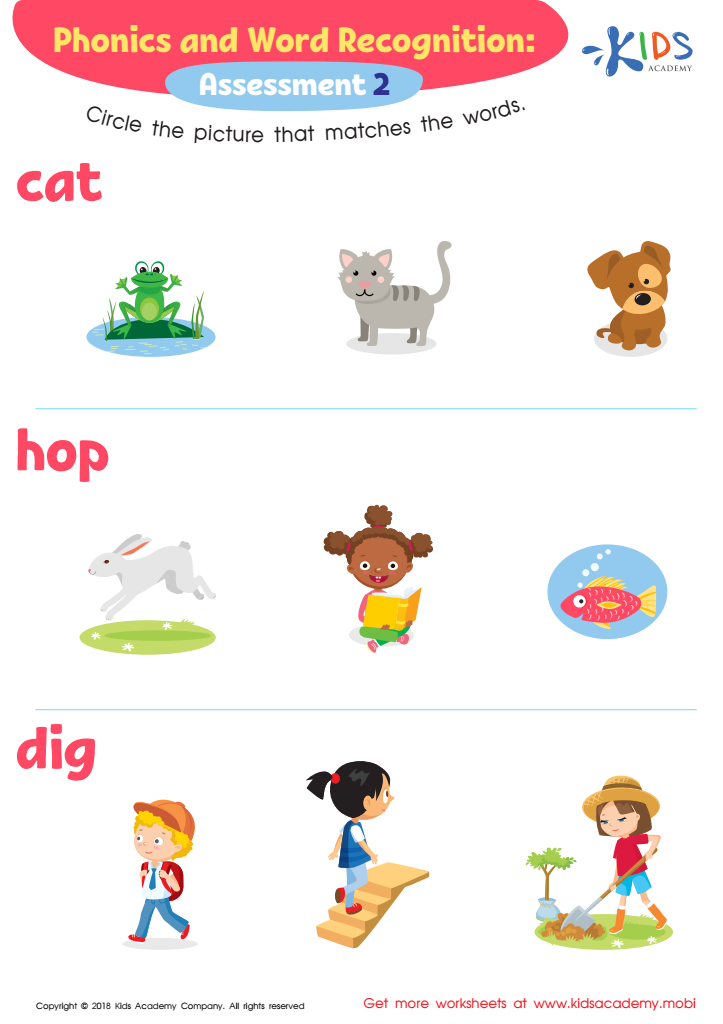

Phonological Awareness: Assessment 2 ELA Worksheet
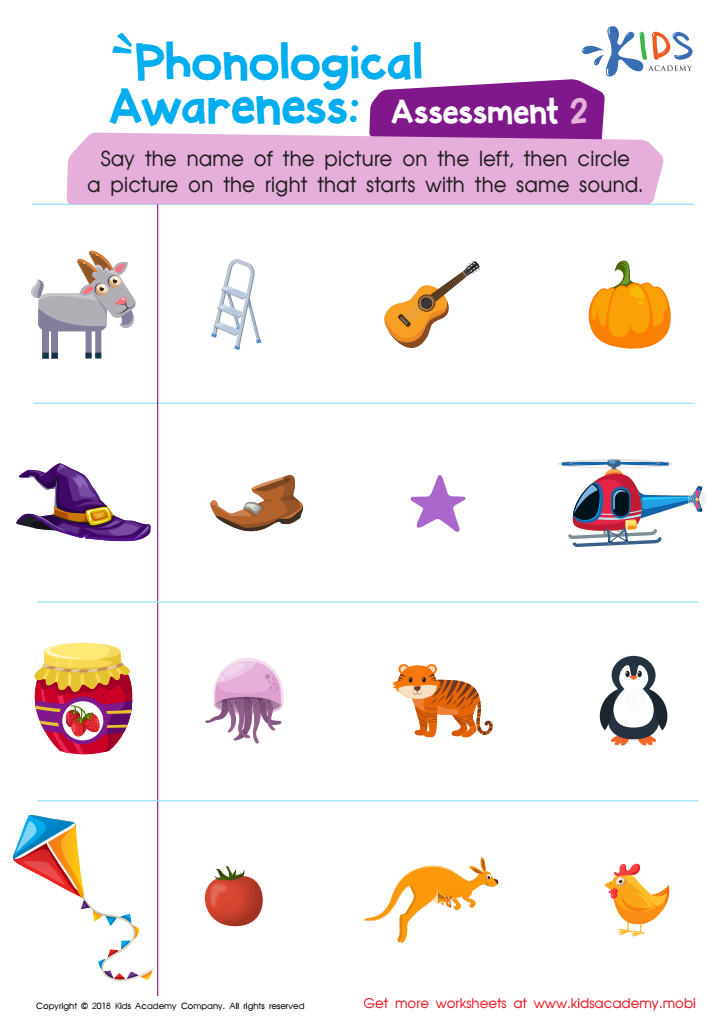

Phonological Awareness: Assessment 2 Worksheet
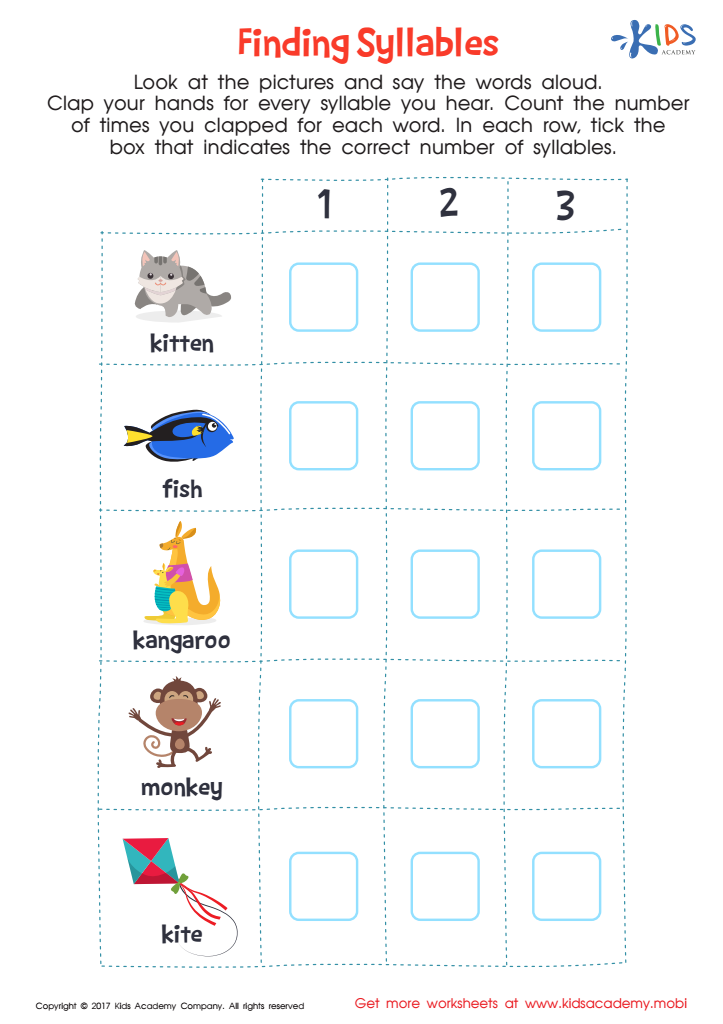

Finding Syllables Word Structure Worksheet
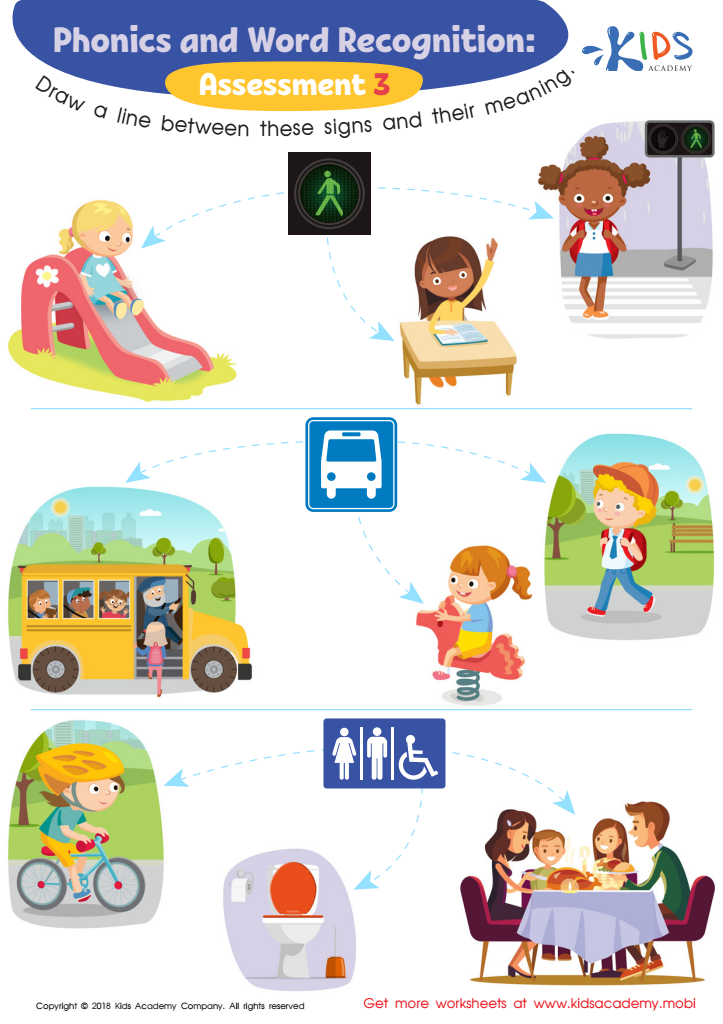

Phonological Awareness: Assessment 3 ELA Worksheet
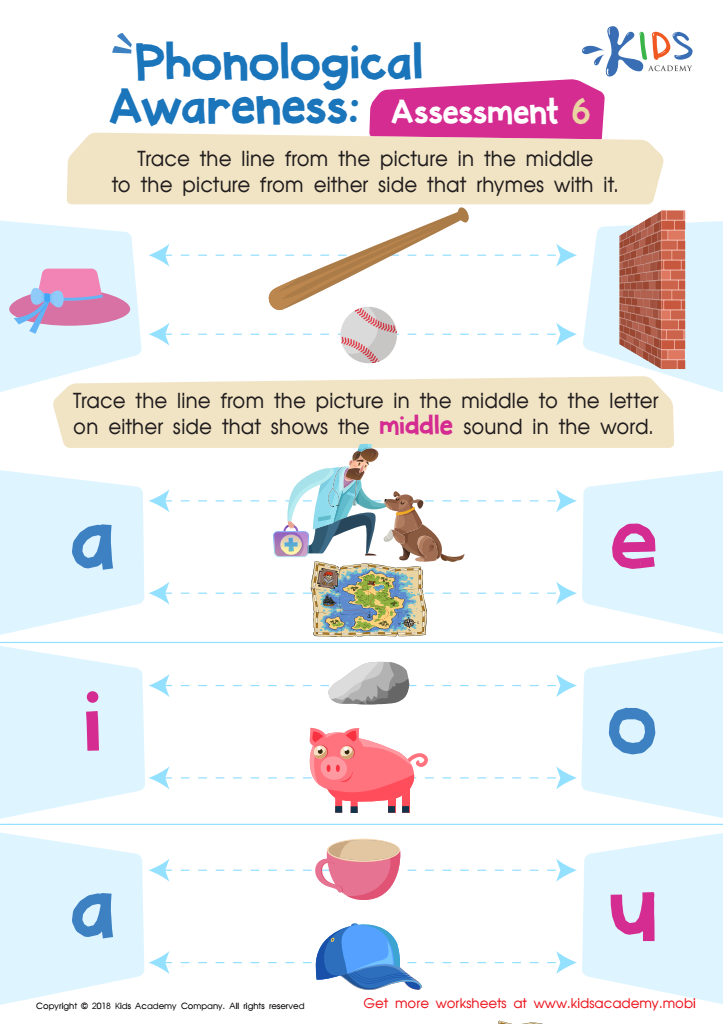

Phonological Awareness: Assessment 6 Worksheet
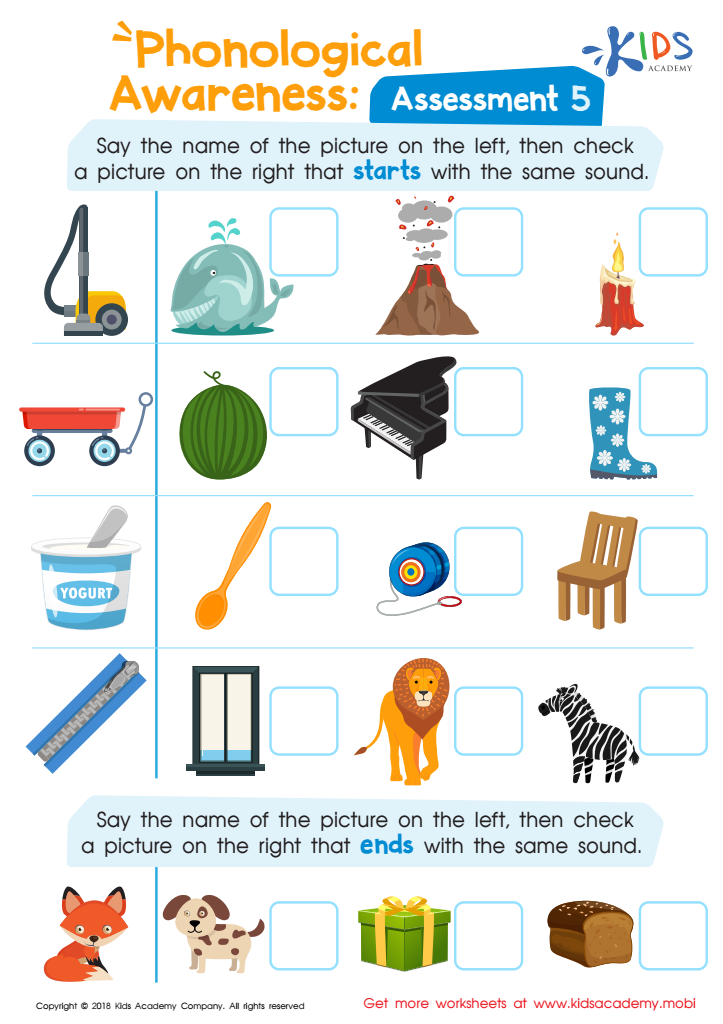

Phonological Awareness: Assessment 5 Worksheet
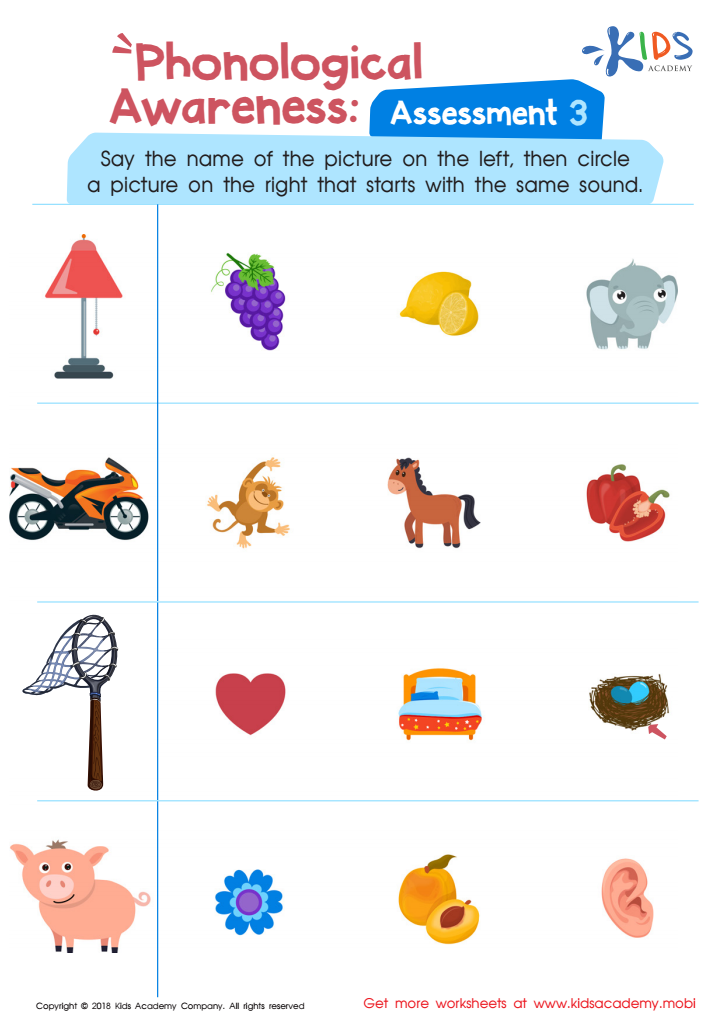

Phonological Awareness: Assessment 3 Worksheet
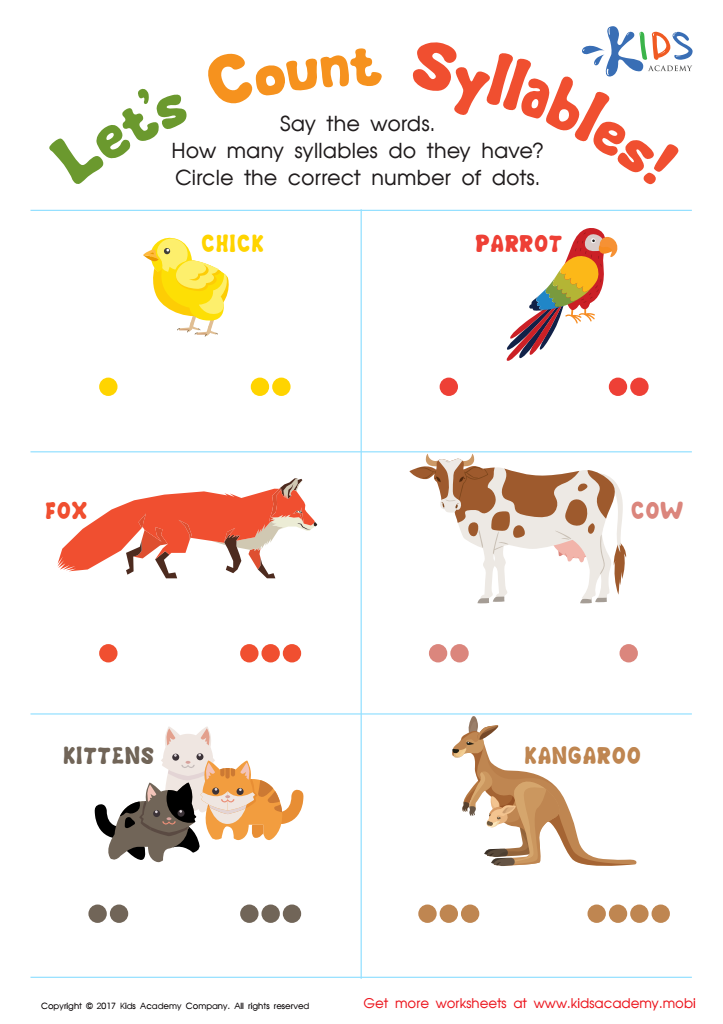

Lets Count Syllables Worksheet
Phonological awareness is a crucial foundational skill for literacy development in preschool-aged children. It involves the ability to recognize and manipulate the sounds in spoken language, which is essential for phonics instruction and reading success later on. Parents and teachers should prioritize phonological awareness for several reasons.
Firstly, research suggests that strong phonological awareness correlates with better reading abilities. Children who grasp sound patterns, such as rhymes and syllables, can more easily decode words, leading to improved reading fluency and comprehension.
Secondly, phonological awareness helps develop listening skills, enhancing children's overall communication abilities. When they learn to identify sounds in words, they become better at articulating their thoughts and understanding complex language structures.
Additionally, introducing phonological awareness activities—like nursery rhymes, clapping syllables, and sound games—can foster a love for language and learning. This makes literacy a more enjoyable experience, encouraging children to engage with reading materials and develop critical thinking skills.
In summary, prioritizing phonological awareness in preschool is vital as it lays the groundwork for future academic achievement, boosts literacy skills, and enhances communication abilities, ultimately ensuring children are well-prepared for their educational journey.

 Assign to My Students
Assign to My Students






